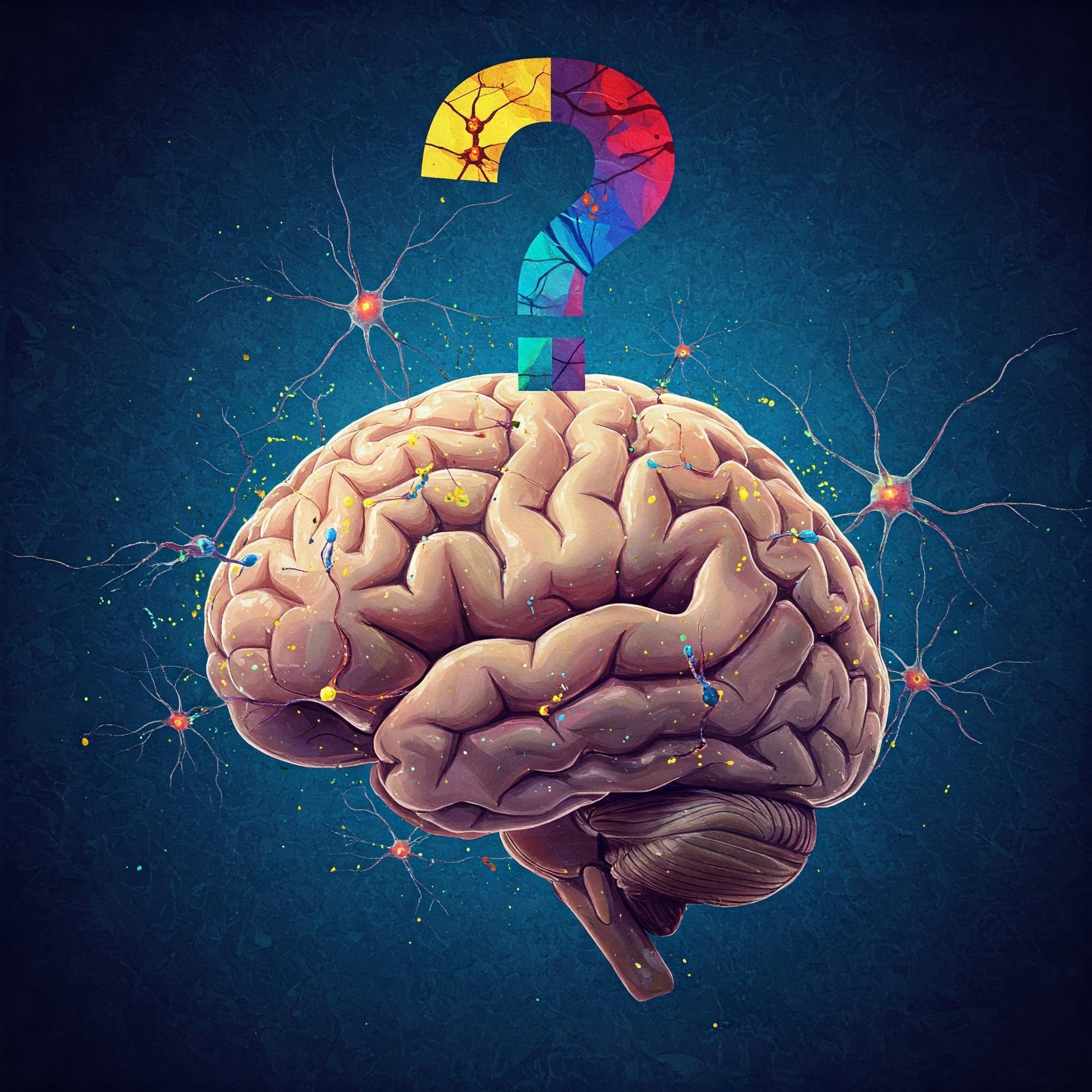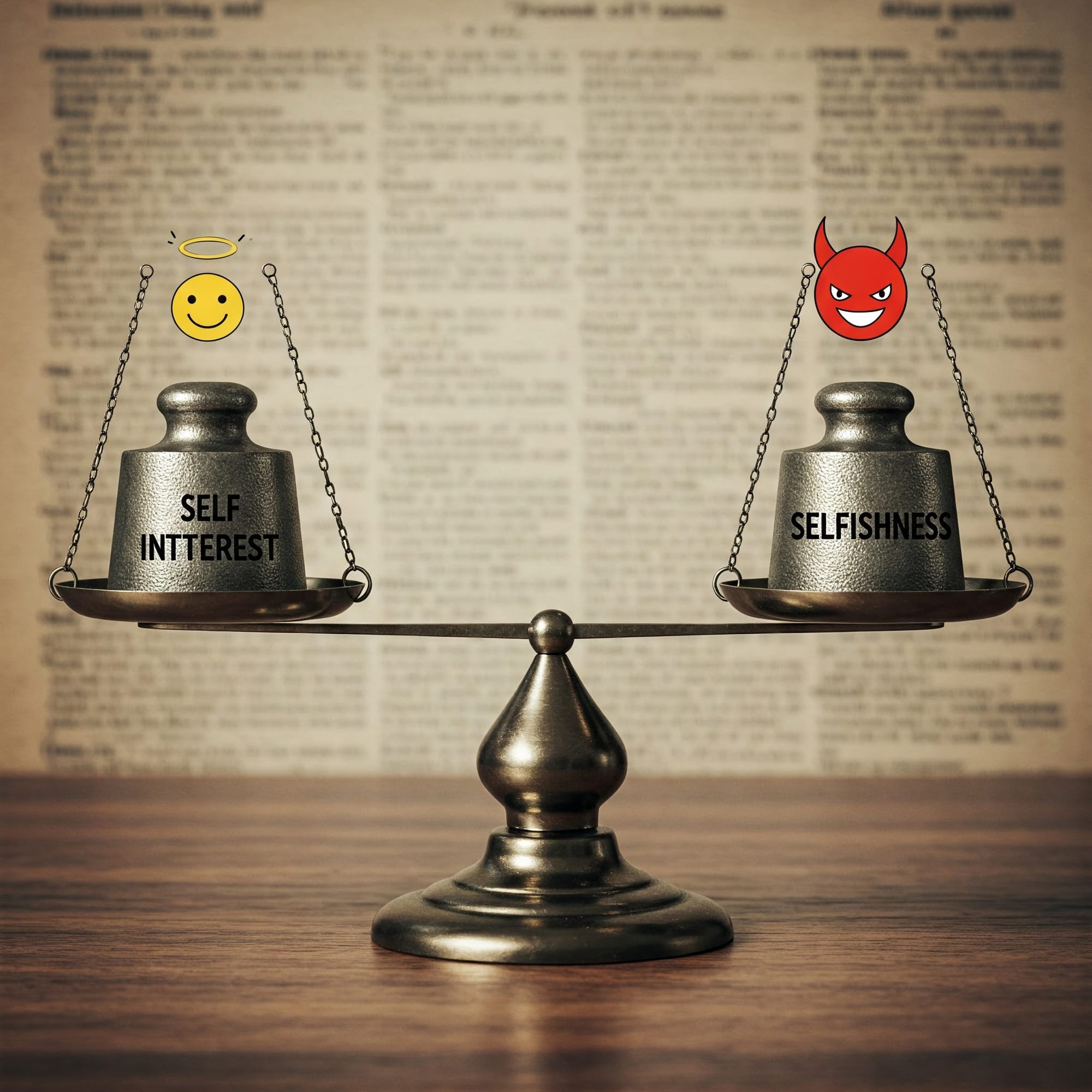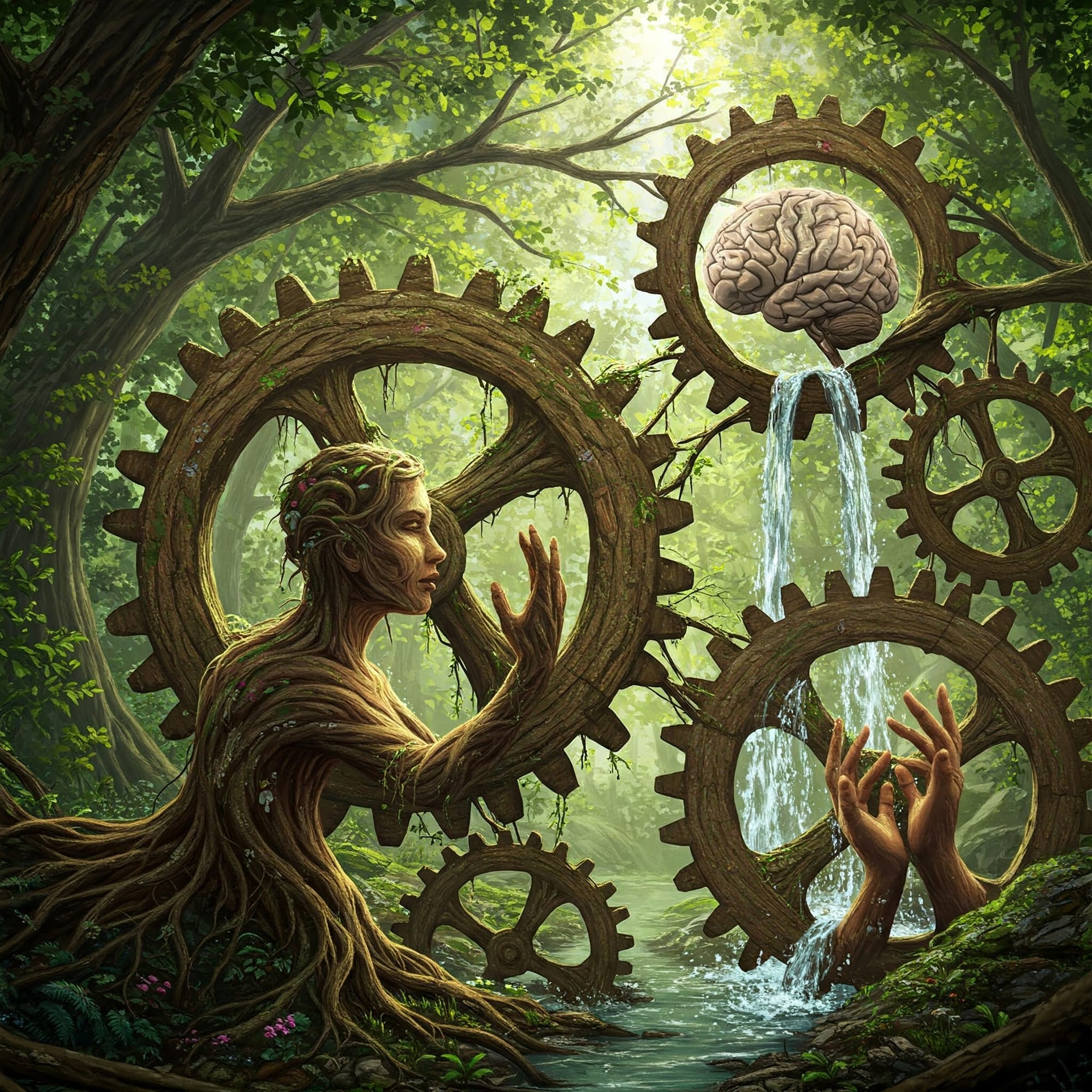Chapter 9: The Mutual Selfishness Model – The Truth About Relationships
The surprising game theory behind human connections reveals why true altruism is rare but self-interest can create genuinely loving relationships. Discover how to create partnerships where selfish incentives align perfectly with mutual care.

RIP JESSE SHIPLEY
It happened during my junior year of high school. Jesse was the kind of person everyone genuinely liked. Not because he was the most popular or athletic or brilliant, but because he possessed something rare among teenagers: authenticity. When Jesse talked to you, his eyes actually met yours. He listened more than he spoke. He had this way of making you feel like you mattered, like you were truly seen in a world where most people were too busy crafting their own image to notice anyone else. Jesse didn't just have friends—he had people whose lives were better simply because he existed in them.
I remember the night everything changed with painful clarity. I was sitting in my grandparents' living room, the steady hum of the television providing background noise. The sudden wail of sirens pierced the quiet neighborhood. Not just one siren, but many—a chorus of emergency vehicles that kept growing louder instead of fading away.
Something was wrong. Something close.
The flashing lights transformed our street into an otherworldly landscape of pulsing red and blue shadows. I felt my stomach hollow out, a visceral dread settling in before I even knew why.
The news spread with the devastating efficiency that only tragedy can achieve. A tragedy that was too close to home both literally and figureally. A car with three of our classmates had wrapped around a telephone pole with such force that the vehicle was nearly unrecognizable. Three kids we had seen in school the same day. Three kids with college plans and summer jobs and silly inside jokes.
Only two were coming home.
Jesse had been in the backseat. He died on impact. His sister, in the passenger seat, survived but with injuries that would require months of recovery. And the driver—walked away physically unscathed but with a wound to his soul that I imagine festers even now, two decade's later.
At that age, death was an abstract concept, something that happened to grandparents or in movies. It wasn't supposed to take someone my own age, someone vibrant and kind, someone whose entire future had been waiting just beyond graduation. It wasn't supposed to take Jesse, whose only mistake was sitting in the wrong seat on the wrong night.
I remember standing in that funeral home, watching the line of mourners stretch out the door and down the block. Classmates, teachers, neighbors, people from other schools who had only met Jesse once or twice – all there, all devastated. The collective grief was palpable, hanging in the air like something you could touch. Seeing his parents devastated, having to maintain strength while processing something no one should ever have to endure. Seeing the driver walk into the church with his head hung low, not looking up as the stares of anger and blame choked him invisibly.
And in the middle of this profound sorrow, I caught myself doing something that made me furious: making it about me.
"I can't believe he's gone." "I just saw him last week." "I feel so sad." "I will miss him so much."
With tears falling down my face, the emotions quickly turned to rage. Rage at myself. I screamed at myself in my inner dialogue: WHO THE FUCK CARES?!? HIS PARENTS ARE BURYING THEIR OWN CHILD! WHY ARE YOU SO FUCKING SELFISH?!?
The moment I noticed this pattern, shame washed over me. Here was a family that had lost their son and brother, hundreds of people genuinely shattered by grief, and somehow, in my head, I had centered myself in a tragedy that wasn't mine.
What kind of selfish person was I? I had nothing to do with this, but why did I feel compelled to insert myself into the grief?
I tried to force myself to stop thinking this way. To focus solely on Jesse, on his family, on anything but my own feelings. What about his parents burying their child? What about his sister who was in the car when it happened? But the harder I tried, the more I noticed that every thought still began with "I."
That's when the epiphany hit me: I couldn't escape this self-referential perspective because no one can. The very way we process and experience the world is inherently self-centered. Every emotion we feel – even grief, even empathy – is experienced through the lens of the self.
And then I looked around the room with new eyes. Everyone there was experiencing "their" version of Jesse's death. The girl crying by the flower arrangement was processing her loss. The football students standing stoically were reconciling their memories with the unthinkable reality. Jesse's best friend was facing a future without the person who understood him best.
We were all being selfish. We couldn't help it. And – here was the revelation – that wasn't actually wrong.

The Uncomfortable Truth
This realization became the foundation of what I now call the Mutual Selfishness Model – perhaps the most misunderstood but essential framework for understanding human relationships. Skeptical of the truth, wanting to feel the burden of knowing I was inherently selfish, I tested this mental framework throughout my life.
The central insight is simple but profound: All human relationships are based on selfishness, and the healthiest ones are those where both parties openly acknowledge this reality rather than pretending otherwise.
This isn't the cynical view it might initially appear to be. I'm not suggesting that love, friendship, or compassion aren't real. Quite the opposite. I'm suggesting that they're more authentic when we acknowledge their true nature.
Consider why you maintain relationships with specific people:
- They make you feel good
- They provide support when you need it
- They share your interests or values
- They challenge you to grow
- They offer practical assistance
- They reflect back a version of yourself you find appealing
Notice something about all these motivations? They're about what you get from the relationship. Even when you focus on what you give to others, the reason you value that giving is because of how it makes you feel – generous, useful, valued, moral, etc.
This doesn't mean you don't genuinely care about other people. It means that caring is inseparable from your experience of it. You can't step outside yourself to care for another without that care being processed through your own neurological and psychological systems.

The Neuroscience of Self-Reference
Modern neuroscience supports this perspective. Our brains are literally wired for self-reference. The default mode network – a set of interconnected brain regions that activates when we're not focused on the external world – is fundamentally involved in self-referential thinking. This network helps us integrate experiences into our personal narrative and make meaning of events in relation to ourselves.
When we witness others' suffering, our mirror neurons fire, creating an internal simulation of their experience – but this simulation happens within our own neural architecture. We don't directly experience another's pain; we experience our brain's interpretation of it. Empathy itself is mediated through self-referential processes.
This isn't a design flaw in human cognition – it's a feature. Our self-referential processing allows us to learn from others' experiences without having to endure them directly. It enables us to form the social bonds necessary for collective survival. The "self" isn't an obstacle to connection; it's the very mechanism that makes meaningful connection possible.
That led me to deeper questions: What makes a person good? What makes them evil? If we can no longer use the word "selfish" as a meter to value ourselves and others, then what makes us different for better or worse?

The Futile Quest for Pure Selflessness
I'm not the first person to wrestle with these ideas. There's a memorable episode of the sitcom Friends that captures this philosophical dilemma perfectly. Phoebe, the group's resident free spirit, insists to Joey that no good deed is truly selfless—that even the most apparently altruistic acts ultimately bring some form of satisfaction to the doer. Joey, determined to prove her wrong, embarks on an increasingly desperate series of attempts to perform a purely selfless act.
First, he donates to a charity—a significant sum he actually needs—only for Phoebe to point out how good the public recognition made him feel. Next, he calls her excitedly to report that he selflessly let a bee sting him just so the bee could look tough in front of its "bee friends." Phoebe gently explains that bees die after stinging someone, deflating his example once again.
What struck me about this comedic subplot was its profound truth: Joey's very determination to prove Phoebe wrong was itself self-serving. Even if he had somehow found a genuinely selfless act, the satisfaction of proving his point would have instantly negated it. The entire premise was a philosophical catch-22. The show played this for laughs, but I saw in it a profound truth about human motivation—we cannot escape ourselves even in our most noble moments.

The Sociopath: A Case Study in Emotional Capacity
This line of thinking led me to learn about sociopathy. A sociopath lacks the neurological capacity for empathy. At the time, I read that a disproportionate percentage of CEOs exhibited sociopathic traits, and though I would never have admitted it out loud, I felt a flicker of envy. The ability to make difficult decisions without feeling the emotional burden of how those choices affect others seemed, in some ways, like freedom.
Put yourself in the shoes of a CEO. The report comes back and you come to the realization that you need to lay off 10 people – people that you know on a personal level. You've attended each other's weddings, watched the kids grow, and you know how devastating this news will be. Now really live in the moment and feel the emotions of how that would make you feel. That feeling – that emotional response to causing others pain – is the sliding scale that changes from person to person. While it may be semantics, that feeling is what people are referencing when they distinguish between "selfish" and "selfless."
Even if you agree with that, it's even more complex. How do we value a person? Does my neurological predisposition to feel emotions more deeply than most make me a better person? No. Does the sociopathic CEO who doesn't have the neurological capacity to feel emotions in the same way make him inherently bad? No.
Our emotional responses – or lack thereof – don't define our moral worth. What matters is what we do with the emotional architecture we've been given.

The Honest Connection: From Self-Deception to Authentic Relationship
The problem isn't selfishness itself – it's dishonesty about our selfishness. When we pretend our relationships are based solely on selfless concern for others, we create a framework doomed to breed resentment, disappointment, and manipulation.
Think about the "nice guy" who does favors for someone he's attracted to, all while claiming he wants nothing in return. When his unacknowledged expectations aren't met, his "kindness" often transforms into bitterness. That's not because he's inherently bad – it's because he wasn't honest (even with himself) about his motivations.
Or consider the parent who says, "I just want you to be happy," but actually wants their child to make choices that align with the parent's vision of success. The disconnect between stated motivation and actual motivation creates confusion and tension for everyone involved.
Real connection begins when we can acknowledge:
- I am in this relationship partly (or primarily) for what I get from it
- You are in this relationship partly (or primarily) for what you get from it
- As long as this exchange is mutually beneficial and transparent, that's not just okay – it's healthy
This honesty creates the foundation for genuine trust. When you acknowledge your selfishness and your partner acknowledges theirs, paradoxically, you can both be more confident that the relationship is authentic rather than performative.

Self-Interest vs. Selfishness: A False Distinction
Many people try to resolve this uncomfortable truth by distinguishing between "self-interest" (portrayed as healthy and normal) and "selfishness" (portrayed as unhealthy and immoral). This is a linguistic sleight of hand that allows us to maintain our moral self-image while still pursuing what we want.
But this distinction ultimately creates more problems than it solves. It encourages us to categorize the same fundamental motivation differently based on how socially acceptable its expression is. This categorization then becomes another tool for judgment rather than understanding.
The harder truth is that it's all selfishness – and that's okay. The relevant distinction isn't between selfishness and some mythical selflessness, but between different expressions of our inherent self-focus:
Transparent vs. Deceptive Selfishness: Are you honest about your motivations, or do you disguise them (even from yourself)? When you help a friend move, do you acknowledge that you're doing it partly because you want them to help you in the future, or do you pretend it's purely altruistic?
Mutual vs. Exploitative Selfishness: Does your selfishness account for the other person's selfish desires too, creating mutual benefit? Do you seek arrangements where both parties get what they want, or do you manipulate situations to benefit yourself at others' expense?
Conscious vs. Unconscious Selfishness: Are you aware of your selfish motivations, or are they operating below your awareness? Do you understand why you're drawn to certain people and repelled by others, or do these preferences remain mysterious even to you?
These distinctions are far more useful than pretending some of our motivations transcend self-interest entirely. They allow us to evaluate the health of our relationships based on honesty, mutuality, and awareness rather than an impossible standard of selflessness.

The Relationship as Ecosystem: A New Metaphor
Rather than thinking of relationships as exercises in sacrifice, we might better understand them as ecosystems where different organisms (people) interact in ways that benefit all participants. In a healthy forest ecosystem, trees aren't "selflessly" providing oxygen for animals – they're releasing oxygen as a byproduct of their own metabolic processes. Animals aren't "selflessly" exhaling carbon dioxide for trees – they're releasing what their bodies can't use. Yet this network of "selfish" exchanges creates a thriving, sustainable system.
Similarly, in healthy relationships, each person acts according to their nature and needs, yet the system as a whole functions beautifully because those needs are complementary. A parent fulfills their biological and emotional drive to nurture while providing essential care to their child. Friends satisfy their social needs while providing companionship to others. Partners meet each other's emotional, practical, and intimate needs while having their own met in return.
The healthiest relationships aren't those where people suppress their needs for others – they're those where needs align in mutually satisfying ways. Like ecosystem participants, we don't need to force ourselves to be "selfless" to create harmonious relationships. We just need to find the right ecological niches where our natural selfishness benefits others as it benefits us.

Evolutionary Wisdom: The Adaptive Value of "Selfish" Connection
From an evolutionary perspective, our capacity for connection evolved precisely because it served individual survival and reproductive success. The bonds between parents and children, between mates, between tribal members – all enhanced genetic survival in an environment where lone individuals faced nearly impossible odds.
Our emotional architecture – including love, empathy, guilt, and gratitude – didn't evolve to transcend self-interest but to facilitate it in increasingly sophisticated social contexts. These emotions allowed our ancestors to maintain the cooperative relationships necessary for survival in environments where resources were scarce and threats were numerous.
The fact that we experience subjective states like love and compassion doesn't mean these states evolved for some purpose beyond our individual and genetic interests. Rather, these emotional experiences are the proximate mechanisms that motivated behaviors with ultimate evolutionary benefits. We feel love because love-motivated behaviors enhanced survival. We feel empathy because empathy-motivated cooperation increased reproductive success.
This evolutionary understanding doesn't diminish the beauty or significance of human connection. If anything, it highlights the exquisite design of emotions that make mutual benefit feel so meaningful and fulfilling. We don't need to invent a mythology of selflessness to appreciate the wonder of human bonds. The truth – that we evolved sophisticated psychological mechanisms to make mutually beneficial exchanges feel profoundly good – is far more elegant.

The Liberation of Acknowledged Selfishness
Standing in that funeral home as a teenager, I felt ashamed of my self-centered response to Jesse's death. Now I understand that my grief, while processed through my own experience, was no less genuine for being selfish. My sadness at losing him was real, even though it was inextricably tied to what his existence had meant to me.
Jesse's impact was powerful precisely because he touched so many people's lives in ways meaningful to them. The line stretching down the block wasn't a testament to some abstract, selfless appreciation of his essence – it was hundreds of individuals who had lost someone who mattered to their lives in specific, personal ways. And that makes his impact more remarkable, not less.
There's profound liberation in acknowledging this reality. When we recognize our inherent selfishness, several powerful shifts occur:
Freedom from Impossible Standards: We release ourselves from the exhausting pretense of being motivated by pure selflessness – a standard no human consistently meets.
Authentic Communication: We can speak honestly about what we want and need, creating the foundation for genuine negotiation rather than manipulation.
Reduced Resentment: When we acknowledge we're in relationships for what we get from them, we take responsibility for our choices rather than blaming others for "making" us do things.
Genuine Gratitude: Understanding that others choose to be in relationship with us for their benefit actually heightens appreciation for their presence. They're with us by choice, not moral obligation.
Better Boundaries: Recognizing that everyone acts from self-interest makes it easier to respect others' boundaries and set our own without unnecessary guilt.
The most beautiful paradox emerges when we fully embrace this model: relationships become more genuine, not less. When we drop the pretense of selflessness, we create space for deeper authenticity, more effective negotiation, greater respect, and more sustainable connections.
The tragedy isn't that we're selfish creatures. The tragedy is that we waste so much energy pretending we're not – energy that could be directed toward creating relationships where our selfishness aligns in beautiful, mutually beneficial ways.
The Paradox Framework Applied
Revelation Layer
The mutual selfishness paradox creates cognitive dissonance by revealing that acknowledging self-interest creates more genuine connection than pretending to be selfless. This challenges our cultural idealization of pure altruism and disrupts our comfortable belief that we should rise above selfishness. This disruption allows you to see how deeply your relationships are shaped by unacknowledged self-interest.
Recognition Layer
This paradox helps you recognize specific patterns:
How unexpressed expectations create resentment in relationships
The inauthenticity that comes from denying your own needs
The relief that comes from honest exchanges about mutual benefit
How your most genuine connections often involve transparency about motives
Reflection Layer
These patterns likely developed from:
Cultural and religious idealization of selflessness
The evolutionary advantage of appearing altruistic
Childhood lessons that equated selfishness with being "bad"
The social benefits of maintaining the illusion of pure generosity
Reprogramming Layer
With this awareness, new possibilities emerge:
Building relationships based on honest negotiation rather than unspoken expectation
Expressing your needs directly rather than through manipulation or martyrdom
Creating mutually beneficial exchanges where everyone's interests are acknowledged
Developing compassion for your own needs while respecting others'
Finding deeper connection through the shared vulnerability of honest self-interest
For a relationship that matters to you (romantic, friendship, family, or professional):
- Write down what you get from this relationship - every benefit, tangible and intangible. Be ruthlessly honest with yourself; no one else needs to see this list.
- Estimate what percentage of your motivation for maintaining this relationship comes from each benefit.
- Write down what you think the other person gets from the relationship with you.
- Have a conversation with the other person where you share some (not necessarily all) of what you value about the relationship - framed in terms of what it brings to your life.
- Ask them what they value about the relationship with you.
- Notice any discomfort that arises during this exercise. Where do you feel resistance to acknowledging selfishness? What narratives about selflessness are you attached to?
The goal isn't to reduce relationships to transactional exchanges but to bring greater honesty to how you think about your connections. What surprised you about your own motivations? How did it feel to articulate what you get from your relationships rather than just what you give?
In acknowledging this truth – that we are all inherently selfish beings – we don't diminish the value of our connections. We honor them in their full, complex reality, creating space for a more authentic form of togetherness than denial could ever produce. For a relationship that matters to you (romantic, friendship, family, or professional):
- Write down what you get from this relationship—every benefit, tangible and intangible. Be ruthlessly honest with yourself; no one else needs to see this list.
- Estimate what percentage of your motivation for maintaining this relationship comes from each benefit.
- Write down what you think the other person gets from the relationship with you.
- Have a conversation with the other person where you share some (not necessarily all) of what you value about the relationship—framed in terms of what it brings to your life.
- Ask them what they value about the relationship with you.
Reflection Questions:
- Where did you feel resistance to acknowledging selfishness? What narratives about selflessness are you attached to?
- Were you surprised by your own motivations when you allowed yourself complete honesty?
- How did it feel to articulate what you get from your relationships rather than just what you give?
- Did the other person's perspective on what they value match your assumptions?
- How might acknowledging mutual benefit change your approach to this relationship?
The goal isn't to reduce relationships to transactional exchanges but to bring greater honesty to how you think about your connections. In acknowledging that we are all inherently selfish beings, we don't diminish the value of our connections—we honor them in their full, complex reality, creating space for a more authentic form of togetherness than denial could ever produce.
